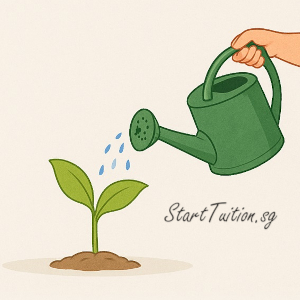The 3-Breath Reset: A Simple Way to Help Your Child Destress

When your child feels anxious or frustrated, there is a simple way to help them reset. It takes less than 30 seconds and helps the mind regain calm and focus. Discover this tiny but powerful stress-relief habit.
What your child needs most right now

Reminding children of their progress builds confidence and calm, which fuels better performance in the exams, more so than stress ever could. Encouragement from parents can turn exam nerves into steady, quiet strength.
The focus trick every student needs

The "one-task-at-a-time" rule helps children finish work faster and with less stress. By focusing fully on one activity before moving to the next, they improve accuracy, efficiency, and confidence, making study sessions calmer and more effective.
Back to school? Try this tiny reset

The first week back is the perfect time to set one simple goal with your child. Small, achievable targets build confidence, consistency, and resilience. A single step each week can lay the foundation for steady, long-term growth.
The one skill your child secretly wants to try

“What is one skill you would love to try, just for fun?" Playful beginnings can reveal hidden strengths and inspire learning beyond the classroom.
Let your child reflect: What went well?

What would they do differently next term? Small conversations build awareness and help them take ownership of their learning.
Tips to Manage Exam Stress

Managing your child's stress during this exam period with some of these tried and tested tips.
Which Learner Am I?

Do you know which type of learner are you? Are you a visual learner, an auditory learner, a read/write learner or a kinaesthetic learner? Read to find out more about the 4 types of learning styles, al
Maximize Fun & Learning This School Holiday

Explore top tips for making the upcoming school holidays unforgettable. Engage in educational and fun activities perfect for ages 6-16.
Tags: For Parents General Info
Overcoming Forgetfulness: Why We Forget and How to Prevent It

Forgetfulness is a common challenge, but understanding how memory works can help students retain information better. This article explores the science of forgetting and provides practical strategies like spaced repetition, active recall, and mnemonics to strengthen learning and recall.


